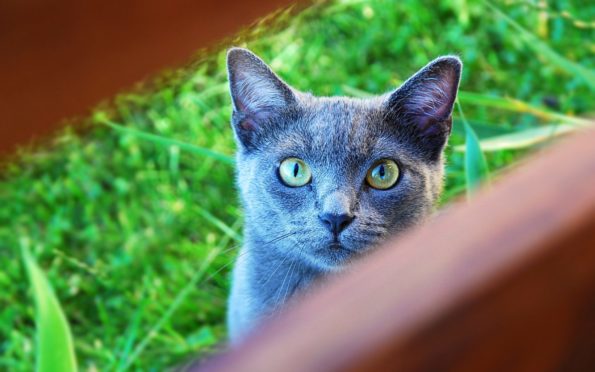Scottish scientists have discovered two known cases of human-to-cat Covid-19 transmission in the UK.
Researchers at the University of Glasgow discovered the link in two cats of different breeds from homes in the UK.
The study, published today in the Veterinary Record, found the cases as part of a feline screening programme.
The cats, both different breeds, came from two separate households and displayed mild to severe respiratory signs, researchers said.
They believe both cats were infected by their owners, who were also displaying signs of the virus.
No evidence domestic animals infect humans
One of the cats displayed mild symptoms of the virus, whilst the other had to be put down.
Now the scientists want to discover more about transmission and potentially discover whether cats could infect humans.
But the study stressed there was no evidence of cat-to-human transfer or transmission between other domestic animals and humans.
The first cat was a four-month-old female Ragdoll kitten from a household in which the owner developed symptoms that were consistent with coronavirus.
The kitten was presented to its veterinary surgeon in April 2020 with difficulty breathing.
The cat’s condition deteriorated and it later had to be put down. Post-mortem lung samples later revealed damage to the lungs consistent with a viral pneumonia.
The second cat was a six-year-old female Siamese from a household where one owner had tested positive for coronavirus.
The cat was taken to its vet with nasal discharge and conjunctivitis, but its symptoms remained mild and the cat later recovered.
‘Relatively low risk’
Professor Margaret Hosie from the MRC-University of Glasgow Centre for Virus Research, lead author of the study, said: “These two cases of human-to-animal transmission, found in the feline population in the UK, demonstrate why it is important that we improve our understanding of animal SARS-CoV-2 infection.
“Currently, animal-to-human transmission represents a relatively low risk to public health in areas where human-to-human transmission remains high. However, as human cases decrease, the prospect of transmission among animals becomes increasingly important as a potential source of SARS-CoV-2 reintroduction to humans.
“It is therefore important to improve our understanding of whether exposed animals could play any role in transmission.”
Worldwide reports
Since the pandemic began there have been reports of cats from Covid-19 households in Hong Kong, Belgium, the USA, France, Spain, Germany, Russia, Japan, Italy, Chile, Canada, Brazil, Argentina, Switzerland and Latvia that tested positive for SARS-CoV-2 and were presumed to be infected from their owners.
Naturally occurring SARS-CoV-2 infections have been reported in cats, non-domestic cats and dogs. Scientists have also shown that cats, ferrets and hamsters are susceptible.
